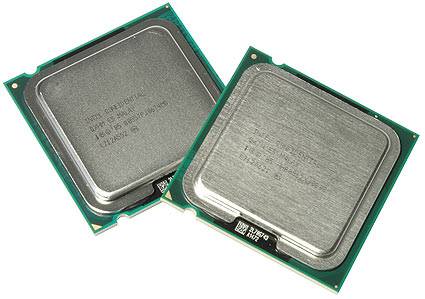Extreme FSB 2: The Quad-Core Advantage?
Get Tom's Hardware's best news and in-depth reviews, straight to your inbox.
You are now subscribed
Your newsletter sign-up was successful
Can More Cores Beat More Clock Speed?
Nearly everyone who's followed CPU technology over the past two years knows that quad cores have a distinct performance advantage in a wide variety of professional applications, because many applications are designed for multi-threading. These same readers also know that the four-core advantage virtually evaporates in games, because games usually support only a single thread and occasionally two, but not four.
Builders who use both games and multi-threaded applications must ponder which processor choice provides the greatest overall benefit to their usage patterns, but they'd better be careful whom they ask for advice. Many so-called "experts" will always recommend a slower-clocked four-core CPU such as the Intel Core 2 Quad Q6600 rather than a faster and cheaper dual-core such as the Core 2 Duo E6750 Compare Prices on Core 2 Duo E6750, even to builders who use their machines exclusively for games!
Overclocking could easily put the Quad Core on top in games as well as applications - or could it? Several members of Tom's Hardware Forums would say "just overclock the Q6600 to E6750 speed" without considering that the E6750 can be overclocked too, and the sad fact is that dual cores usually overclock better than quads.
When overclocking, the final question is whether a maxed-out Core 2 Quad can approach the gaming performance of a fully-overclocked Core 2 Duo of the same generation. Diminishing the Core 2 Quad's frequency handicap would make its higher IPC in multithreaded applications an overwhelming reason to choose the higher-cost part.
We were fortunate enough to receive a Core 2 Duo and Core 2 Quad using the same G0 stepping revision to aid in our quest.
Join our discussion on this topic
Get Tom's Hardware's best news and in-depth reviews, straight to your inbox.
Current page: Can More Cores Beat More Clock Speed?
Next Page QX6850, Q6600, What?
